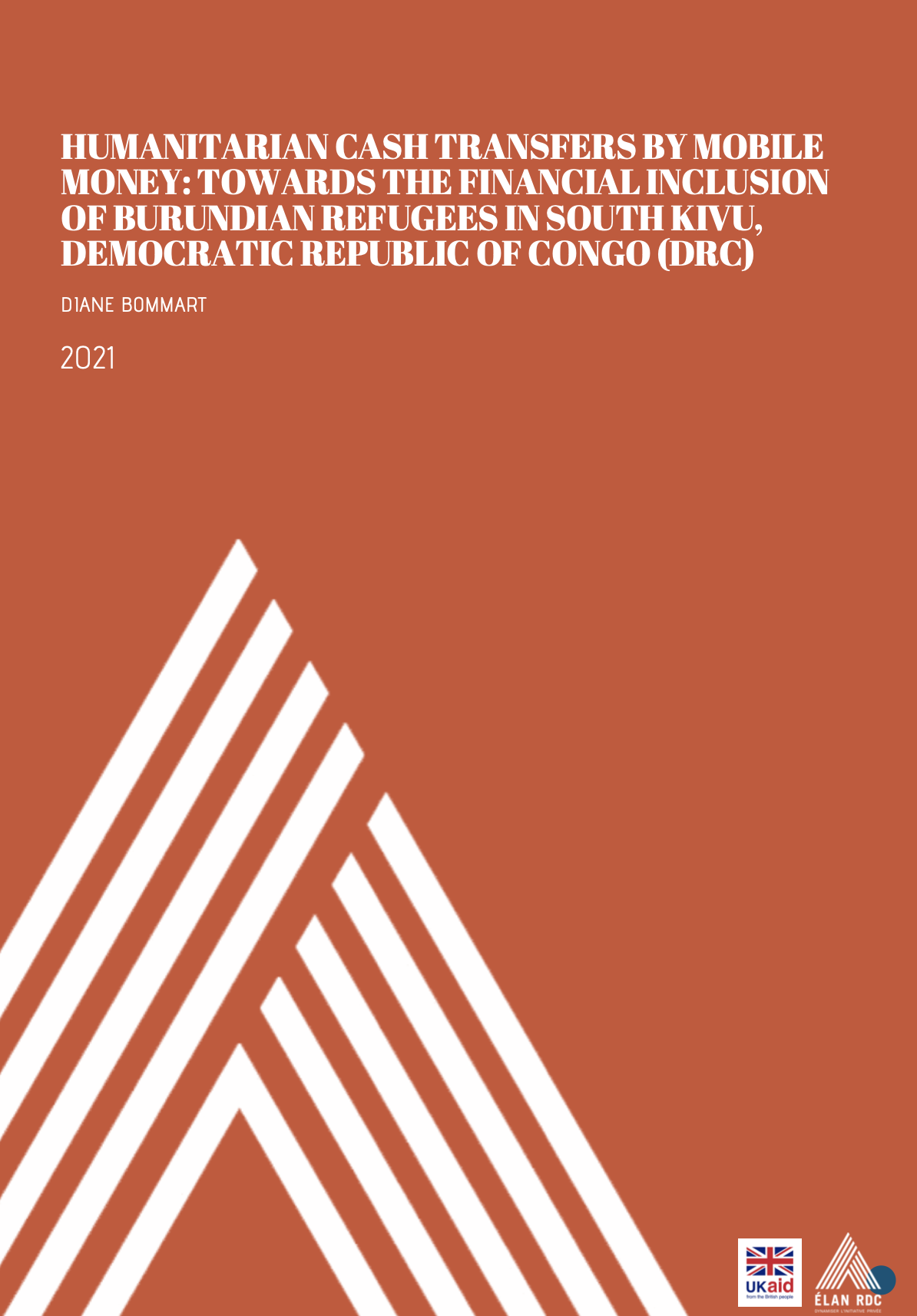2021 | ELAN RDC

Humanitarian cash transfers are becoming increasingly important in humanitarian programmes, increasing from 1% of assistance in 2006 to 10% in 2016.1 One of the distribution mechanisms, Mobile Money, has many advantages in terms of security and traceability of payments, especially in hard-to-reach areas where transporting and securing cash is costly and risky; reporting; cost-effectiveness (compared to transfers made by banking institutions and transfer agencies); and sustainability, by promoting the medium-term financial inclusion of beneficiaries, who can keep their accounts after receiving assistance.
Inspired by positive experiences in Kenya, Rwanda, Lebanon and Jordan, among others, several humanitarian actors have tested Mobile Money approaches in humanitarian cash transfers in the DRC, notably within the framework of the ARCC (Alternative Responses to Communities in Crises) Programme, mainly funded by the UK Government Department for International Development (DFID) and coordinated by UNICEF as of 2011. Through ARCC, the largest multipurpose cash transfer programme in the DRC at the time, humanitarian actors explored the implementation of several distribution mechanisms, including Mobile Money. Other organizations, such as UNHCR, are working to develop the use of Mobile Money in their cash transfer programmes and other initiatives aimed at furthering financial inclusion.
However, in the DRC, significant constraints limit the use of this tool in humanitarian cash transfers; in particular: the extent and quality of GSM connection; the capacity of banking and Mobile Money agents, and especially knowledge of the needs of humanitarian actors and their beneficiaries. The latter sometimes lack the identity documents required to open an account, are less financially educated and are often located outside urban centres where mobile network operators focus most of their investments.
Despite the success of some Mobile Money humanitarian cash transfer programmes in 2017 and 2018, particularly in the east of the country through Airtel and Vodacom – the mobile network operators that manage the Mobile Money platforms “Airtel Money” and “m-pesa” respectively – direct cash transfers (issued in person by agents) seem to be favoured by the humanitarian community, to the detriment of digital solutions.
To inform the private sector of the opportunities presented by humanitarian actors and their beneficiaries, and to facilitate the financial inclusion of vulnerable populations in a bid to reduce poverty, ÉLAN RDC is committed to promoting enhanced collaboration between humanitarian agencies and mobile phone operators.
Click the button to read more.

1621 North Kent Street, Ste 900,
Arlington, VA, 22209
P 202.534.1400
F 703.276.1433
Website Photos: © mari matsuri
